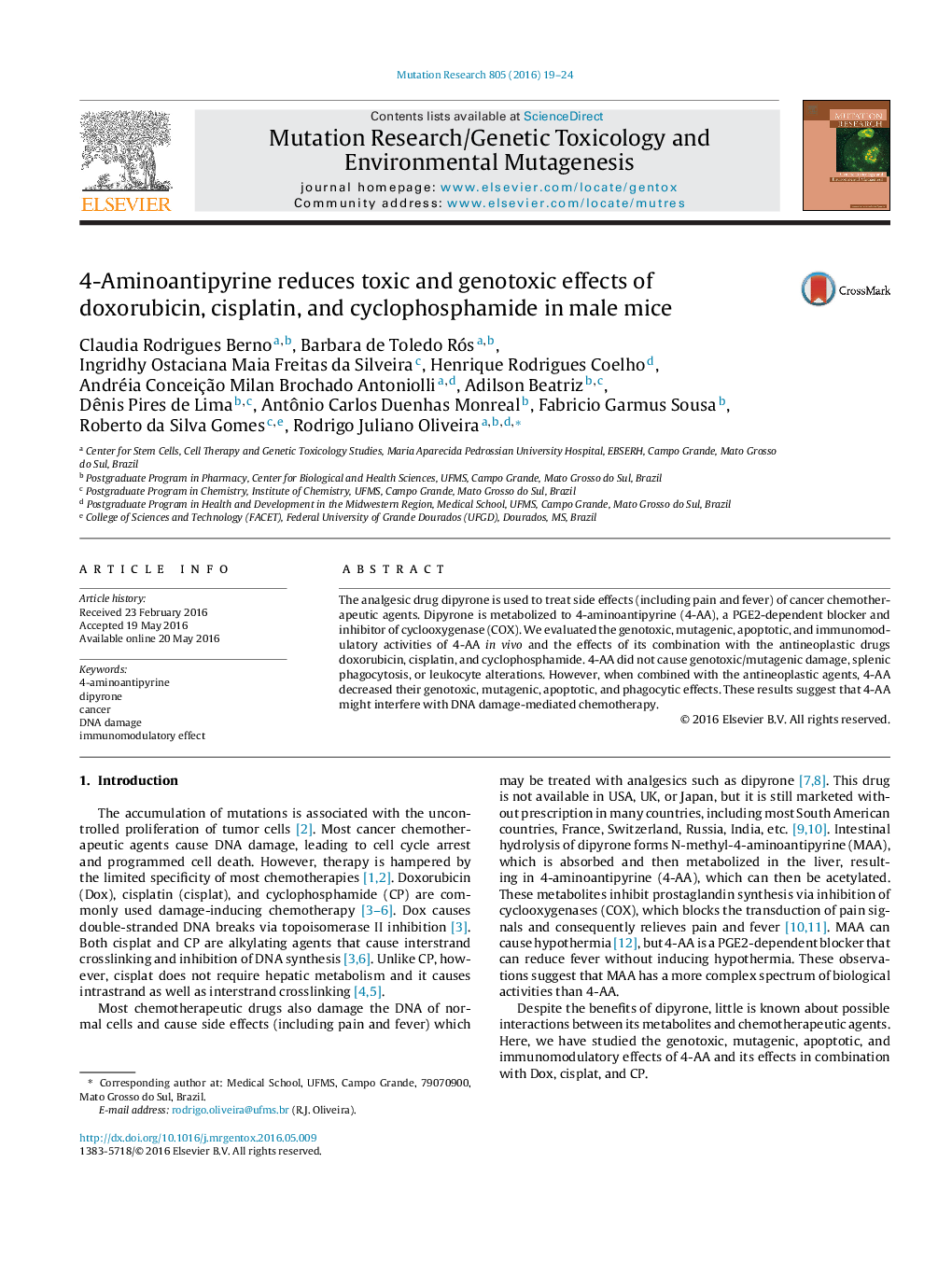| Article ID | Journal | Published Year | Pages | File Type |
|---|---|---|---|---|
| 2147796 | Mutation Research/Genetic Toxicology and Environmental Mutagenesis | 2016 | 6 Pages |
•4-aminoantipyrine (4-AA) is not genotoxic and mutagenic in vivo.•4-AA can interfere with DNA damaging agents biological activities.•4-AA may reduce the effectiveness of DNA damage-based chemotherapy.
The analgesic drug dipyrone is used to treat side effects (including pain and fever) of cancer chemotherapeutic agents. Dipyrone is metabolized to 4-aminoantipyrine (4-AA), a PGE2-dependent blocker and inhibitor of cyclooxygenase (COX). We evaluated the genotoxic, mutagenic, apoptotic, and immunomodulatory activities of 4-AA in vivo and the effects of its combination with the antineoplastic drugs doxorubicin, cisplatin, and cyclophosphamide. 4-AA did not cause genotoxic/mutagenic damage, splenic phagocytosis, or leukocyte alterations. However, when combined with the antineoplastic agents, 4-AA decreased their genotoxic, mutagenic, apoptotic, and phagocytic effects. These results suggest that 4-AA might interfere with DNA damage-mediated chemotherapy.
